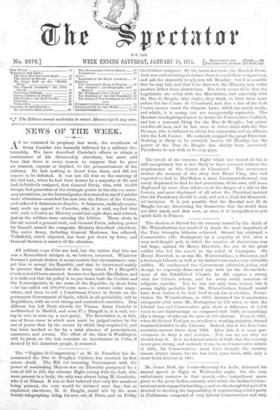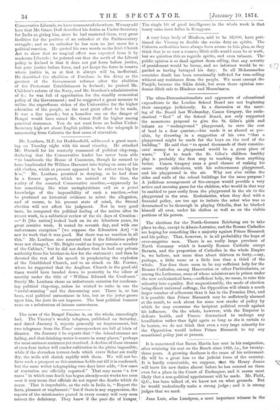Mr. Grant Duff, the Under-Secretary for India, delivered his annual
speech at Elgin on Wednesday night On the very unfortunate omission in that speech,—the insignificant space given to the great Indian calamity with which the Indian Govern- ment are now engaged in battling,—and on the thoughtful part of it devoted to showing the impossibility of constructing a third party in Parliament, composed of very Liberal Conservatives and very Conservative Liberals, we have commented elsewhere. We may add here that Mr. Grant Duff described his duties as Under-Secretary for India as giving him, since he had mastered them, very great facilities for the position of an onlooker at the Parliamentary struggle ; and as an onlooker he has seen no just cause for a political reaction. lie quoted his own words on the Irish Church Act to show that no magcal effect was expected from it by moderate Liberals ; he pointed out that the merit of the Liberal policy in Ireland is that it does not put force before justice, but puts justice before force, and yet keeps the force in reserve where justice is, as at first it always will be, ineffectual. He described the abolition of Purchase in the Army as the greatest of the Government reforms after the abolition of the Protestant Establishment in Ireland ; he praised Mr. Childers's reform of the Navy, and Mr. Goschen's administration of it ; he was full of approbation for the steadily economical policy of the Government ; and he suggested a great measure to utilise the superfluous riches of the Universities for the higher education of the people, as the next great effort to be made. It was a fine speech ; but a homelier one on the danger of Bengal would have raised Mr. Grant Duff far higher among practical statesmen. You do not want from an Indian Under- Secretary high art about English politics, when the telegraph is announcing from Calcutta the first cases of starvation.



































